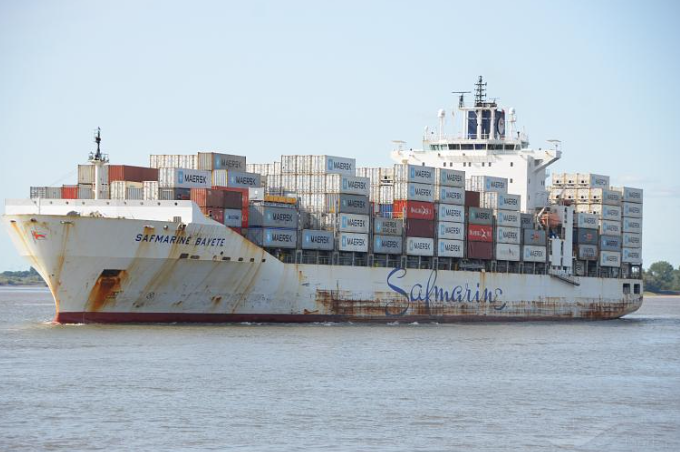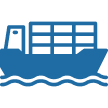
Safmarine Bayete / Source: VesselFinder
Nearly US$10 million of cocaine was seized from a Maersk ship after the vessel arrived in Tauranga, New Zealand.
The drugs were concealed in the engine compartment of a refrigerated container that held bananas, New Zealand Customs Service said on 14 November.
The vessel called at the port five days earlier.
The ship name was not disclosed, but vessel-tracking data shows that the 3,078 TEU Safmarine Bayete, which had arrived from Panama, was the only boxship to call Tauranga on 9 November. Safmarine Bayete is assigned to Maersk Line’s OC1 service connecting the Oceania region with the US East Coast and the Americas.
Maersk did not respond to Container News’ request for comment.
The 35 kilos of cocaine could have produced 350,000 individual doses.
New Zealand customs said that the dosage could have caused NZ$10.5 million (US$6.3 million) of harm in the country.
Customs Group Manager Maritime Paul Campbell said, “Customs is extremely proud of the work both frontline officers and our support teams do every day to intercept the smuggling efforts of transnational organised crime groups who aim to exploit our communities and profit from the harm they inflict through their trafficking.”
Campbell acknowledged that such raids, resulting from targeted and verification checks on shipments, could hold up legitimate cargo flows.
The seizure comes just two weeks after a joint raid by New Zealand customs and police saw the confiscation of 140 kilos of cocaine that was hidden in a gap in a container in Auckland port. Four men were arrested in connection.
Campbell added, “There is an economic cost with this criminal behaviour that includes disruption to legitimate activity on New Zealand’s ports. While Customs risk assesses all incoming shipments and vessels, the time involved for physical searches is significant. Like the Customs’ operation in Auckland recently……clearance of other legitimate shipments becomes inevitably slower while we undertake inspections for suspect containers. This is time-consuming work but Customs, and port operators understand it has to happen to stop the criminal activity that threatens New Zealand’s supply chain.”
Martina Li
Asia Correspondent
Container News
 Hotline: 0944 284 082
Hotline: 0944 284 082
 Email:
Email: 


 VN
VN